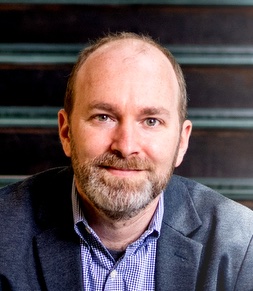The State Center’s newest grant program is its Data Technology & Practices Panel. With so many commercial transactions now occurring on-line, so much consumer data being held by businesses, and so many “decisions” being made by algorithms that affect consumers, the need for expertise in the collection, retention and use of consumer data has increased considerably. The purpose of the State Center Data Technology & Practices Panel is to provide State officials with access to computer science and related expertise at the initial stages of evaluating a wide variety of data practices — expeditiously, confidentially and at the State Center’s expense.
The State Center’s Data Technology & Practices Panel is comprised of experienced, distinguished computer scientists with expertise in examining practices that might impact consumers. Panelists’ resumes and a copy of the Consulting Agreement each has signed are posted below. Panelists are available for consultation to State Attorneys General Offices for a maximum of twenty (20) hours per matter, upon approval by the State Center’s Executive Director. Financial assistance for longer term advice or testimony, by panelists or other experts, may be sought through the State Center’s normal grant application process.
Our Panel

Jennifer King
Privacy and Data Policy Fellow, Institute for Human-Centered Artificial Intelligence
Stanford University
Signed Consulting Agreement
Curriculum Vita

Kirsten Martin
William P. and Hazel B. White Center Professor of Technology Ethics; Professor of IT, Analytics, and Operations, Mendoza College of Business; Director of the Notre Dame Technology Ethics Center
University of Notre Dame
Signed Consulting Agreement
Curriculum Vita

Alan Mislove
Assistant Professor and Senior Associate Dean for Academic Affairs, Khoury College of Computer Science
Northeastern University
Signed Consulting Agreement
Curriculum Vita

Arvind Narayanan
Associate Professor and Leader of the Princeton Web Transparency and Accountability Project
Princeton University
Signed Consulting Agreement
Additional Information

Christo Wilson
Associate Professor
Khoury College of Computer Sciences
Northeastern University
Signed Consulting Agreement
Curriculum Vita
Request a Consultation
Before requesting the consultation, the State Attorney General’s Office should first contact the expert to ascertain their availability and ensure there are no conflicts.
There are two ways to engage the State Center’s e-Discovery consultant:
1. The simplest is to submit a Request for Panel Work. That Request should be submitted to the Executive Director. It must provide enough detail about the consulting services sought (without disclosing confidential information) to allow the Executive Director to evaluate the request. The Executive Director’s approval of the Request makes the submitting Attorney General’s Office a third party beneficiary of the Consulting Agreement, entitling it to use of the consultant at the State Center’s expense and triggering confidentiality and other built-in protections.
A State desiring further services from their selected expert may separately contract directly with that expert at any time for any continued work.
2. An alternative method is for a State Attorney General’s Office to negotiate its own agreement with the State Center consultant at the hourly rate they agree upon and then request that the State Center provide reimbursement for up to 20 hours of the panelist’s time pursuant to the State Center’s negotiated agreement with that consultant (with those payments either being made directly to the consultant or being made to the State in reimbursement). This alternative may be preferred by States who have already decided to engage the panelist for a longer term.
A State may use the same Request for Panel Work form, but provide additional information about your own arrangements with the panelist. The request should provide substantially the same information and be submitted to the Executive Director. The Executive Director’s approval of the Request makes the submitting Attorney General’s Office a third party beneficiary of the Consulting Agreement, entitling it to use of the consultant at the State Center’s expense and triggering confidentiality and other built-in protections.
The Executive Director has sole discretion to act with respect to all requests for Panel expert consultations. Unless authorized to do so, the Executive Director will not disclose information about the nature of the Consulting Services provided to any third party or to any member of the State Center’s Board of Directors while the matter is pending.
The State Center hopes that all grant recipients will consider contributing funds to the State Center realized from projects supported by State Center grants. Consideration of the State Center as a recipient of third party recoveries through litigation or settlement, of cy pres distributions, or from other sources is appreciated. In the event a matter is resolved with the ability to recover costs, the State Center suggests that reimbursement for its grants be sought as costs. All such funds will be used to support the important work being done by the State Center and will make additional grants possible in the future. The State Center, however, does not require an advance commitment to repay any grant made to a State Attorney General’s office. Applications for such grants are assessed on their merits, regardless of the likelihood of repayment.
